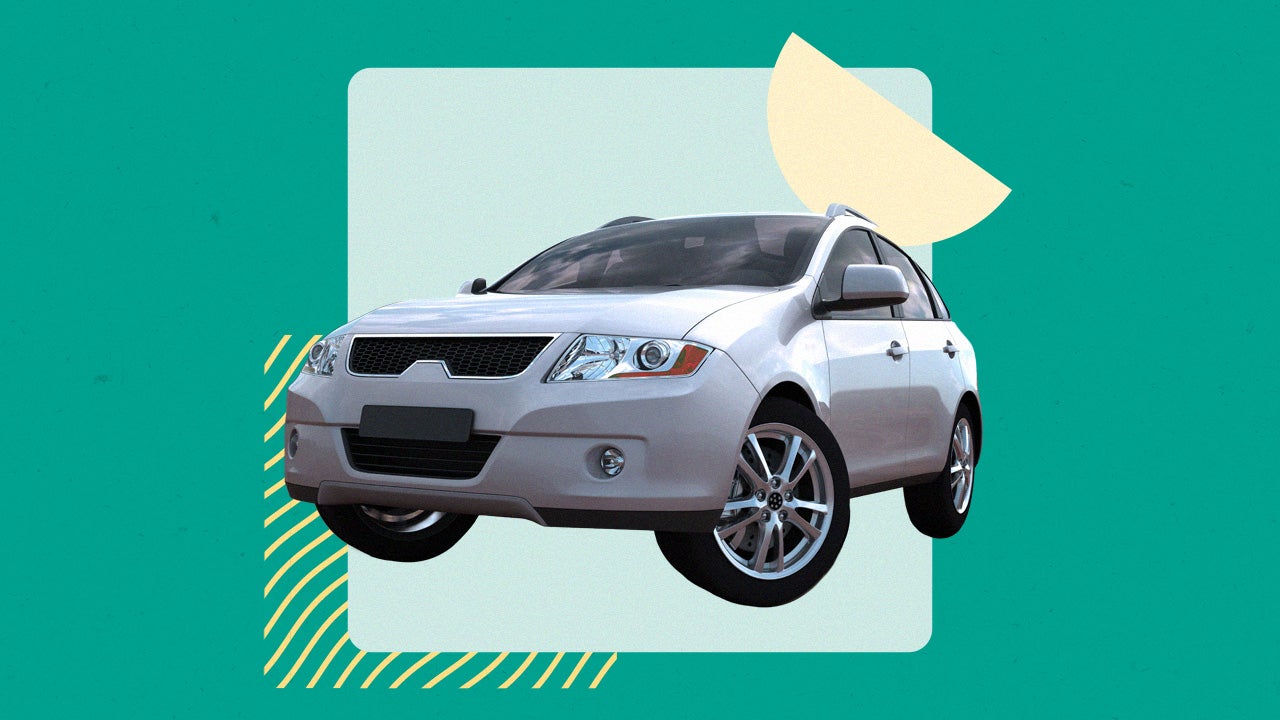What are the pros and cons of refinancing a car?

Key takeaways
- Refinancing your car loan could save you hundreds or thousands of dollars if you qualify for a lower rate.
- If your credit score has dropped since you took out the original loan, you may have trouble qualifying for a lower rate.
- If you refinance to a longer repayment term, you will likely have to pay more interest over the course of the new loan.
If you’re looking to reduce your monthly vehicle expenses, one solution is to refinance your car loan. If you can secure a more competitive auto loan refinance rate, you could lower your payments and save on interest.
But refinancing is not without risk and could even increase your costs. So, it’s best to consider the benefits and drawbacks of refinancing and assess your financial situation to determine whether it’s a smart move.
Pros and cons of refinancing a car loan
The benefits of refinancing your current auto loan center around saving money. You may even be able to refinance for more than you owe if you need cash. Consider the pros and cons of refinancing a car when determining whether refinancing is right for you.

Pros
- You could qualify for a lower rate.
- You may lower your monthly payments.
- You may pay off your loan sooner.
- You can tap your vehicle’s equity for cash.

Cons
- You may pay more in interest.
- You may have to pay fees.
- Your loan could end up upside-down.
Benefits of refinancing your car loan
You could qualify for a lower auto loan rate
Your auto loan rate significantly impacts your monthly payment. If your credit score has improved since you took out your loan, it’s a great time to explore refinancing options. Your credit score is likely higher if you’ve made timely loan payments and responsibly managed your other debts. You may also receive a lower rate if macroeconomic factors have shifted and lenders are offering lower rates.
You may lower your monthly payments
If you struggle to afford your monthly payments, refinancing can lower your monthly payment and free up cash in your budget. You can get a lower rate, a longer term or both.
Imagine you had a 36-month car loan with a remaining balance of $15,000 and an 11 percent annual percentage rate (APR). Here’s how refinancing could change your payment.
| Remaining payments | Interest rate | Monthly payment | Total interest paid | |
|---|---|---|---|---|
| Original loan | 36 | 11.00% | $491 | $2,679 |
| Refi with longer term | 48 | 11.00% | $388 | $3,609 |
| Refi with lower rate | 36 | 9.00% | $477 | $2,172 |
Note that while your monthly payment will drop with a longer repayment term, you’ll pay more interest over the life of the loan.
You can pay off your loan sooner
Refinancing can also help you repay your loan ahead of schedule. If your income has increased since borrowing your auto loan and you can afford a larger monthly payment, it may be a good time to refinance to a shorter term. Paying off your loan early means you’ll save on overall interest — assuming the lender’s prepayment penalty doesn’t outweigh your savings.
But if you’d prefer not to refinance, you can make larger monthly payments to reduce the balance faster. You’ll accomplish the same result and may save money by avoiding origination and other fees.
You may access quick cash
Some lenders offer cash-back auto loan refinancing, which can be beneficial if you need fast cash. In addition to replacing your current loan with a new one, you’ll receive money based on the equity you have in your vehicle.
For example, if you have $10,000 left on your auto loan and the current value of your car is $15,000, you have $5,000 in equity. If you decided to withdraw the full $5,000, your total loan amount would be $15,000.
But this type of refinancing can be risky. A larger loan amount means that you’ll pay more in interest. Plus, there’s a chance you’ll become upside-down in your loan, owing more than the vehicle is worth. If you decide to sell the vehicle or the car is totaled, the proceeds of the sale or insurance pay out won’t satisfy your auto loan.
Disadvantages of refinancing your car loan
You may pay more in interest
If market rates have risen or you’ve experienced credit challenges, refinancing your auto loan could result in a higher interest rate, increasing the amount you’ll pay overall.
And if you refinance to a longer-term car loan, you may pay more interest over the life of the new loan, even if you secure a lower rate. Rates for long-term loans tend to be higher than those found on shorter repayment terms.
For example, say you have a 36-month, $15,000 auto loan with an 11 percent APR. Here’s how adjusting those terms impacts the total interest you’ll pay.
| Interest rate | Remaining payments | Monthly payment | Total interest paid | |
|---|---|---|---|---|
| Original loan | 11% | 36 | $491 | $2,679 |
| Longer term | 11% | 60 | $326 | $4,568 |
| Longer term and lower APR | 9% | 60 | $311 | $3,683 |
You may have to pay fees
Remember that refinancing your loan comes with extra fees. These costs can include some of the same fees your current lender might have charged, including application and origination fees. Your lender may also charge a fee to transfer the title.
These fees can add up, so calculate whether the cost of refinancing outweighs the financial benefit. If you are already in a tough financial situation, these fees may make refinancing less workable.
You may go upside-down on your loan
If you refinance and extend your loan’s term, you are more likely to end up owing more than your vehicle’s worth. This is called being upside-down or underwater on your loan.
Your chances of going upside-down with a longer loan term increase because cars generally depreciate in value each year.
Should you refinance your car loan?
The key to determining whether refinancing your loan is a good idea comes down to the amount of money you can potentially save. Weigh the pros and cons and use an auto refinance calculator to understand the short- and long-term costs. Below are some situations where it might make sense to refinance:
- Your credit has improved. If your credit score has improved, you may receive more favorable terms and rates through refinancing. You can also refinance with bad credit, though this may not be the best option.
- You received dealer financing. Typically, the terms offered through dealerships are not the best available. Explore other lending options if you currently have dealer financing.
- You can’t make payments. Missing payments can result in fees, damaged credit and eventual repossession of the vehicle. If you cannot make payments, refinancing may yield a lower monthly payment.
- You qualify for a better interest rate. If market rates are better than when you initially applied, you may qualify for a lower interest rate. However, this likely isn’t the case. Market rates are currently elevated due to Federal Reserve rate hikes in recent years. But if your credit has improved since you originally borrowed, you may snag a lower rate even though rates are high across the board.

When should you refinance your car loan?
If refinancing doesn't improve your financial wellbeing, it probably isn't the right choice. Avoid this route if you can't secure a better rate or save money.
Read moreIf you decide to refinance your auto loan, shop with multiple lenders to find the best available rate. Many offer prequalification tools on their websites that allow you to view potential loan offers without impacting your credit score.
Next steps
Before researching refinance rates, weigh the advantages and disadvantages. Ideally, you want to save money instead of simply stretching your loan term.
If you are struggling financially, it may be sensible to look beyond refinancing to get a more affordable monthly auto loan payment. Ask the lender to modify your current loan or consider trading your car in or selling it privately to get the relief you need.
Why we ask for feedback Your feedback helps us improve our content and services. It takes less than a minute to complete.
Your responses are anonymous and will only be used for improving our website.







